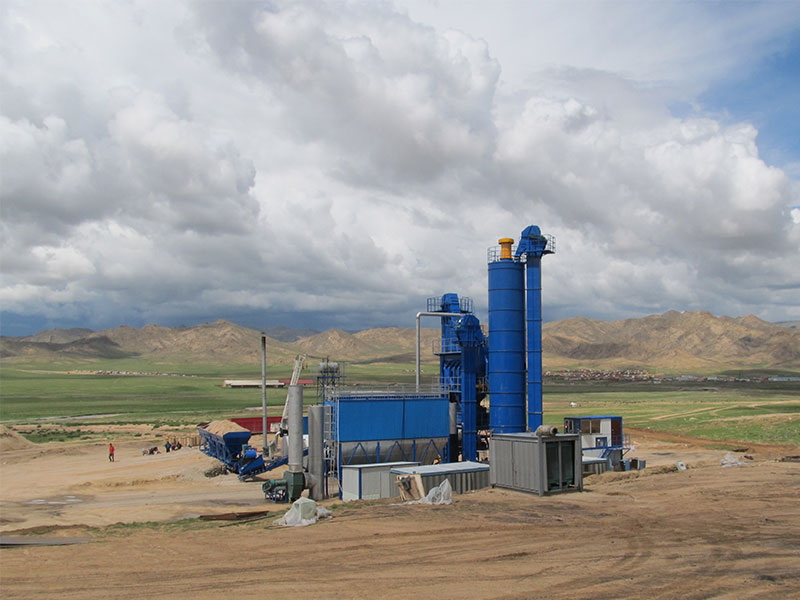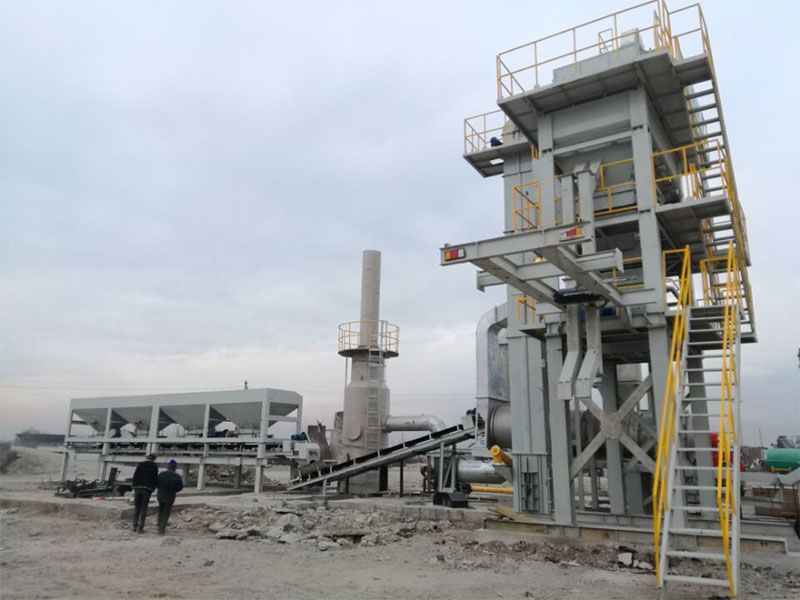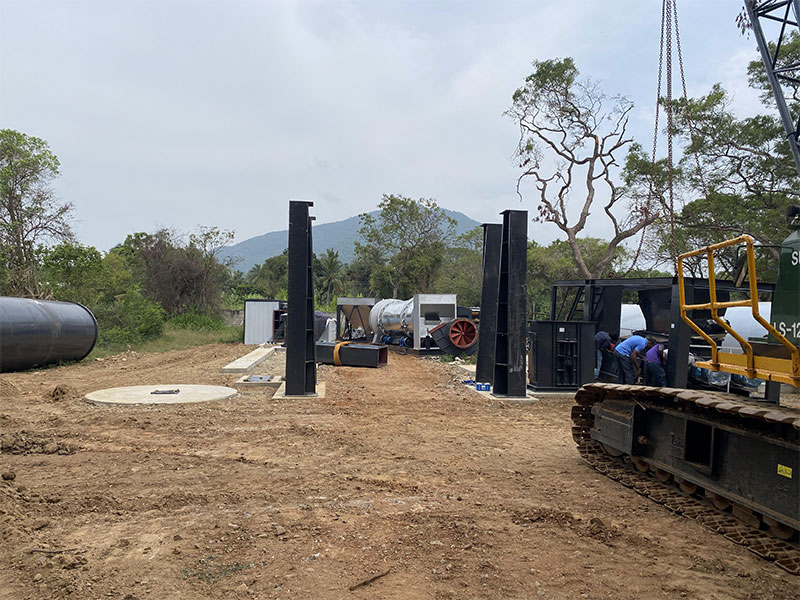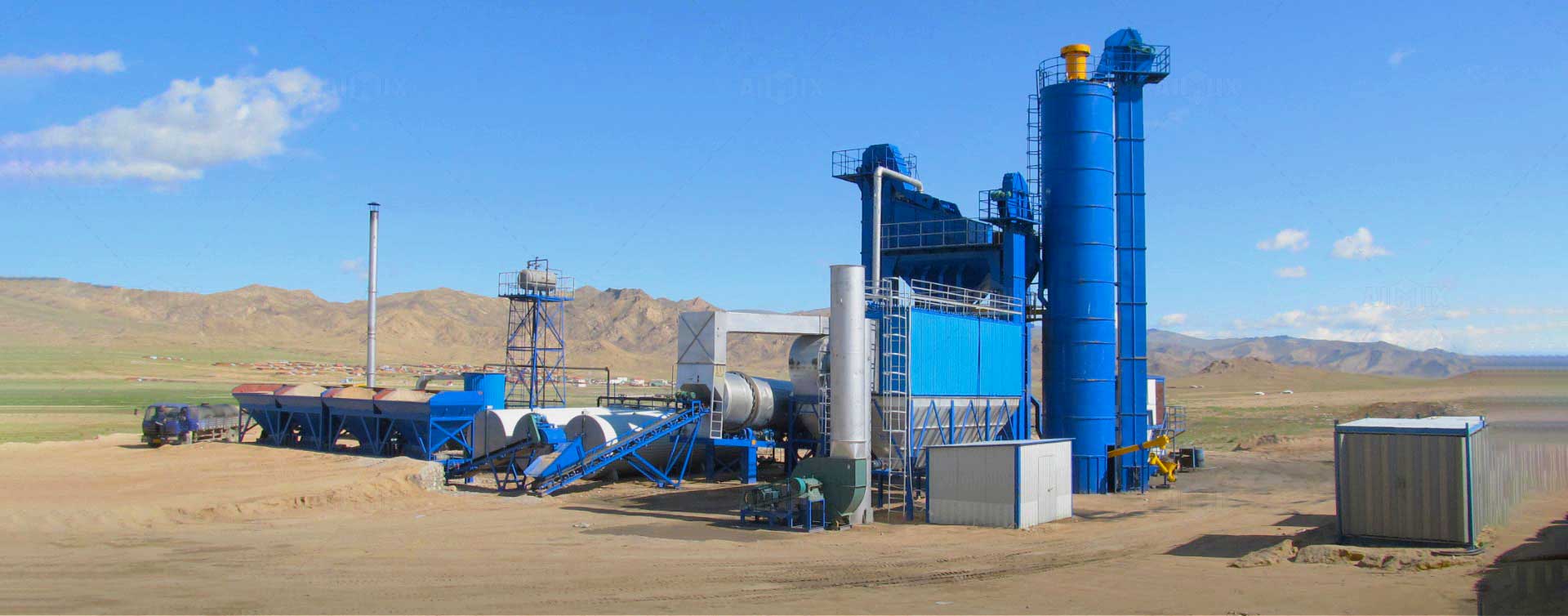Asphalt, also known as bitumen, plays a crucial role in the construction and maintenance of our roadways. It provides the smooth, durable surface that we rely on for safe and efficient transportation. But have you ever wondered how this essential material is produced? The answer lies in the asphalt mixing plant, a complex and highly specialized piece of machinery.

The Basics of Asphalt Mixing Plants
An asphalt mixing plant is a facility where various materials are combined to produce asphalt for road construction. It is also known as a hot mix plant due to the process involving the heating of aggregates and bitumen to create the final product. The key functions of an aspal amp can be broken down into several essential steps:
Aggregate Handling and Drying:
The process begins with the collection of various aggregates such as gravel, sand, and stone. These aggregates are carefully measured and then conveyed to a drying drum within the mixing plant. The drying process removes any moisture from the aggregates, ensuring the final asphalt product’s quality.
Heating and Mixing:
Once the aggregates are dry, they are then transported to a mixer where hot bitumen is added. The bitumen, a viscous, black, and sticky substance derived from crude oil, acts as a binder, holding the aggregates together. The heating and mixing phase is crucial to achieving the right consistency and temperature for the asphalt mix.
Hot Storage Silo:
The hot, freshly mixed asphalt is then temporarily stored in a hot storage silo to maintain its high temperature. This storage helps ensure that the asphalt remains workable and can be readily transported to the construction site.
Weighing and Quality Control:
Quality control is a fundamental aspect of asphalt production. Throughout the process, the plant continuously monitors and adjusts the proportions of aggregates and bitumen to maintain consistency and adhere to the required mix design.

Loadout and Delivery:
Once the asphalt mix is ready, it is loaded into trucks or other transport vehicles for delivery to the construction site. Timely delivery is essential to maintain the proper temperature and workability of the mix.
Types of Asphalt Mixing Plants
There are various types of asphalt mixing plants, each designed to serve different construction needs. The primary types include:
Batch Plant:
Batch plants are known for their precision and are suitable for small to medium-sized projects. They produce asphalt in batches, which allows for greater control over the mix’s composition.
Drum Plant:
Drum plants are capable of producing large quantities of asphalt continuously. The asphalt drum mix plants are often used for major road construction projects due to their efficiency.
Counterflow Plant:
Counterflow plants use a unique technology where the exhaust gases are circulated in the opposite direction of the material flow. This design is more energy-efficient and environmentally friendly.

Mobile Plant:
Mobile asphalt mixing plants are compact and can be transported to different job sites, making them ideal for projects in remote or temporary locations.
Warm Mix Asphalt Plant:
Warm mix asphalt plants use additives or foam technology to produce asphalt at lower temperatures, reducing energy consumption and emissions.
The Environmental Impact
Asphalt mixing plants play a crucial role in road construction, but they also have an environmental impact. The energy used for heating and mixing asphalt can result in emissions and energy consumption. To address these concerns, there has been a growing focus on developing environmentally friendly technologies and processes for asphalt production. These include the use of reclaimed asphalt pavement (RAP), warm mix asphalt, and cleaner-burning fuels. Aimix supplies affordable harga aspal mixing plant baru.
Reclaimed Asphalt Pavement (RAP):
RAP is the recycling of old asphalt into new mixes. This not only reduces the need for raw materials but also decreases waste. Modern asphalt mixing plants are equipped to incorporate RAP into the mix, making the process more sustainable.
Warm Mix Asphalt:
Warm mix asphalt is produced at lower temperatures than traditional hot mix asphalt, which reduces energy consumption and emissions. It also allows for a longer construction season in cold climates.
Cleaner-Burning Fuels:
Many asphalt mixing plants have transitioned to cleaner-burning fuels like natural gas to reduce emissions. Additionally, advanced filtration systems are used to capture and minimize harmful emissions.
Conclusion
Asphalt mixing plants are the unsung heroes of road construction. They are the key to producing high-quality asphalt mixes that form the foundation of our roadways. Understanding their functions and the technology involved is crucial to improving the efficiency and environmental impact of asphalt production. With advancements in technology and a focus on sustainability, the asphalt industry is moving towards a greener and more efficient future. Asphalt mixing plants continue to evolve, ensuring that our roadways remain safe, durable, and environmentally responsible. Contact Aimix Group Indonesia to learn more about this machine here: Aimixgroup.id.
